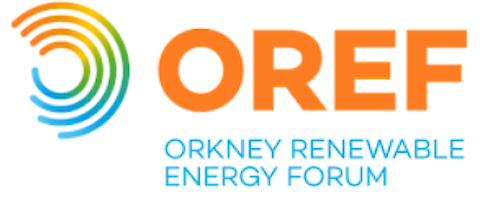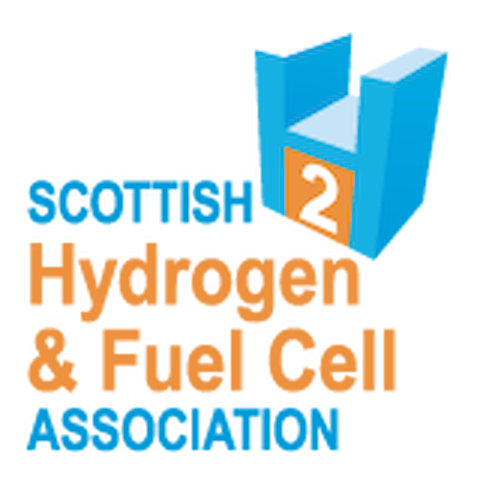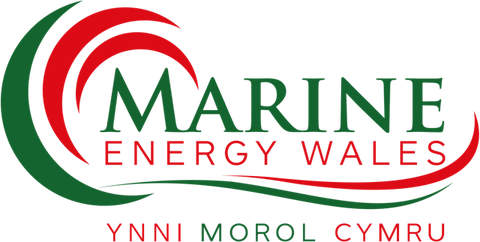Energy system of the future to be demonstrated in Orkney


The first phase of a new £28.5 million project to create a Virtual Energy System (VES) in Orkney, Scotland, has been launched to digitally link distributed and intermittent renewable generation to flexible demand.
The ReFLEX (Responsive Flexibility) Orkney project will demonstrate a first-of-its-kind Virtual Energy System (VES) interlinking local electricity, transport, and heat networks into one controllable, overarching system.
The project aims to create a ‘smart energy island’, demonstrating the energy system of the future, which will reduce and eventually eliminate the need for fossil fuels.
The project is funded by UKRI through the Industrial Strategy Challenge Fund.
Energy and Clean Growth Minister, Claire Perry said:
“What we are seeing here on Orkney is a test bed for the energy system of the future. These smart systems are a key part of our modern Industrial Strategy and will provide cheaper, greener and more flexible access to energy for everyone. What we learn from these innovations could one day be rolled out across the UK and exported around the world and we’ll be able to say it was ‘Made in Orkney’.”
Led by the European Marine Energy Centre (EMEC), the ReFLEX Orkney project brings together an expert consortium of Orkney-based partners – Solo Energy, Aquatera, Community Energy Scotland, Heriot-Watt University and Orkney Islands Council – as well as multi-national energy company Doosan Babcock.
Electricity, transport and heat powered by local renewable energy generation, will be coupled with flexible energy demand balancing the intermittency of renewables.
At the heart of the project is the demonstration of flexible energy balancing technologies. For example, the project aims to deploy:
- Up to 500 domestic batteries;
- Up to 100 business and large-scale batteries;
- Up to 200 Vehicle-to-Grid (V2G) chargers;
- Up to 600 new electrical vehicles (EVs);
- An island community-powered electric bus and e-bike integrated transport system;
- Up to 100 flexible heating systems; and
- A Doosan industrial-scale hydrogen fuel cell.
Solo Energy will implement their FlexiGrid software platform enabling smart monitoring and control of the flexible technologies to charge during periods of peak local renewable generation, and release stored energy during times of peak demand.
These technologies will be introduced under attractive leasing type finance and novel ways of ownership that avoid the end user requiring major capital investment.
This pioneering project will help Orkney maximise the potential of its significant renewable generation capabilities, help to ensure higher quality and more affordable energy services, as well as further lowering the county’s carbon footprint by decreasing reliance on imported carbon-intensive grid electricity from the UK mainland.
Once demonstrated and proven in Orkney, it is expected that the VES model and associated integrated energy service supply framework will be replicated in other areas across the UK and internationally, building long term export opportunities for the ReFLEX project partners and helping to create more flexible and renewable-based energy systems.
UK Government Minister Lord Duncan said:
“Scotland is at the forefront of smart energy which is key to the UK Government’s modern Industrial Strategy. With £14.3 million of UK Government funding going to the ReFLEX project in Orkney, we are helping to establish the Scottish Islands as an energy powerhouse.
“We need cheaper, cleaner and flexible energy and Orkney will be at the heart of this.”
Rob Saunders, Deputy Challenge Director, Prospering from the Energy Revolution, UK Research and Innovation said:
“We all need energy systems that are cheaper, cleaner and consumer-friendly. We have a great opportunity with the ReFLEX project to show just how innovation can deliver this energy ambition for the future. Supported by the Industrial Strategy Challenge Fund, ReFLEX can drive investment, create high-quality jobs and grow companies with export potential.”
On behalf of the ReFLEX Orkney project partners, Neil Kermode, Managing Director at EMEC said:
“We’re delighted that UKRI have funded this project. This new model will demonstrate how we can better interact with, own and manage our integrated energy systems locally, both at individual and community level.
“50% of the project is being funded privately indicating the appetite that exists within the partners to make this project work. Orkney has already demonstrated high commitment for local sustainable energy solutions and the county is well on its way to decarbonising each aspect of the energy system.
“The target for Orkney is to have a negative carbon footprint and this pioneering project will build upon the existing local energy system, local infrastructure and local expertise, to accelerate this transition to a fully sustainable and flexible energy system.”
ENDS
For further information, contact:
Lisa MacKenzie, Marketing and Communications Manager, EMEC
Email: lisa.mackenzie@emec.org.uk
Tel: +44 (0)1856 852207
Editors notes:
Industrial Strategy Challenge Fund
The Industrial Strategy Challenge Fund brings together the UK’s world-leading research with business to meet the major industrial and societal challenges of our time. It provides funding and support to UK businesses and researchers, part of the government’s £4.7 billion increase in research and development over the next 4 years. It plays a central role in the Government’s modern Industrial Strategy. It is run by UK Research and Innovation, which comprises the Research Councils, Innovate UK and Research England.
UK Research and Innovation
UK Research and Innovation is a new organisation that brings together the UK Research Councils, Innovate UK and Research England into a single organisation to create the best environment for research and innovation to flourish. The vision is to ensure the UK maintains its world leading position in research and innovation. For more information visit www.ukri.org.
About the ReFLEX Orkney Consortium:
- EMEC – www.emec.org.uk
- Aquatera – www.aquatera.co.uk
- Community Energy Scotland – www.communityenergyscotland.org.uk
- Doosan Babcock - www.doosanbabcock.com
- Heriot Watt University - https://www.hw.ac.uk
- Orkney Islands Council - www.orkney.gov.uk
- Solo Energy - www.solo-energy.com
Partner quotes:
Mark Hamilton from Solo Energy said: “Orkney has unique energy challenges that make the island the perfect place to demonstrate this cutting edge new technology. With more renewable generation than the local grid can use, and a constrained connection to the mainland, new battery and software can help balance the gird locally.
“The ReFLEX Orkney project will be a world-leading example of how energy storage and flexible demand can enable a full transition to a low-cost 100% renewable future by solving the intermittency problem. We can have all the wind and solar farms we want but unless we have the means to store and balance renewables we will never fully wean ourselves off fossil-fuels and get to the root of the climate change problem. Orkney is a perfect location to demonstrate how high levels of local renewable generation combined with intelligent flexible demand can deliver full energy autonomy and lower consumer energy bills.”
Gareth Davies, Managing Director of Aquatera said: “This project reflects the long-term strategic commitment that the project partners have shown to delivering a more sustainable and improved energy system in Orkney that can then act as a model for other parts of the UK and indeed other places in the world. We see this as a truly transformational opportunity to establish a better and progressive relationship between energy customers and their local energy systems.
“Over the last few years Aquatera has taken a much more proactive role in pro-active energy project development at home in Scotland and in places such as the Philippines and Singapore – this ReFLEX project offers a major impetus to that strategy.”
Nicholas Gubbins, CEO of Community Energy Scotland said: “This brilliant news is built on the high level of collaboration between enabled communities and energy innovators in Orkney. A successful partnership that has started to show how we can supply and manage local energy in a more sustainable and equitable way, and, with this project, we all have an outstanding opportunity to further test and develop the new, fairer, and better future models of ownership and value systems pioneered by communities like those in Orkney.
“Community Energy Scotland is proud to have helped incubate and knit these wide-ranging interests together so far, and to continue to play a key role in allowing development under ReFLEX Orkney. There is so much here that can be relevant to support grass-roots resilience in other communities, other parts of the world, and to help address some of the wider fundamental energy issues we all now collectively face.”
Graeme Booth, Doosan Babcock Head of Research and Innovation said: “Doosan are very happy to be involved in this innovative project that is pushing the boundaries of decentralised, renewable energy system integration. The world is rapidly realising that hydrogen has a pivotal role to play in responding to global energy challenges and, within the ReFLEX Orkney project, this is a fantastic opportunity to demonstrate integrated renewable electricity, heat and transport solutions within a collaborative partnership.”
Orkney Islands Council Leader James Stockan said: "Orkney Islands Council is delighted to be involved in this project and we are looking forward to working with our key partners to develop the proposals. Through our Enterprising Communities priority set out in our Council Plan, we are committed to supporting strategic projects that enable further development of Orkney as a low carbon energy systems innovation hub and the ReFLEX Orkney project is an excellent example of that."
Heriot-Watt University, Prof. David Flynn said: “The only way to deliver an affordable, resilient and sustainable energy service to society is through an integrated, whole systems approach. To understand the complexities and to deliver demonstratable solutions, such research must happen in communities, and Orkney is a global leader in energy innovation. This project has the potential to deliver global change in how we achieve our low carbon objectives and also provide UK companies and communities with first mover advantage on unlocking revenue opportunities from our energy infrastructure, providing excellent wealth creation opportunities from the low carbon economy.
“Orkney is not only an energy innovation epicentre but also a flagship for distributed wealth creation.”
Energy in Orkney
Orkney has taken many steps over several decades to progress towards a local energy system, including:
- Long standing heritage as a national location for testing modern wind turbine technology since the first deployment in the 1950s (http://www.orkneywind.co.uk/costa.html)
- Some of the first large scale (900kW) locally, and now wholly community, owned wind turbines, resulting in community-led local regeneration and community development supported through their incomes.
- The deployment of the UK’s first large scale Advanced Network Management system to manage distribution network constraints, with live energy data available for the island (Live site: https://www.ssen.co.uk/anm/)
- Annual renewable generation over 100% of annual demand since 2013.
- Creating world leading expertise in novel renewable energy demonstration and generation, e.g. tidal, wave & hydrogen (www.emec.org.uk)
- Production of an Energy Audit for Orkney, showing Orkney’s current energy sources and uses, and identifying further ways to move to a local energy system (http://www.oref.co.uk/resources/orkney-energy-audit/)
- Studies into phasing of energy generation outputs and patterns of energy demand, district heating potential, alternative fuels for ferries, strategic planning for generation and distribution infrastructure (http://www.oref.co.uk/resources/orkney-energy-audit/)
- Research and publication of an Electric Vehicle Strategy for Orkney (http://www.oref.co.uk/draft-orkney-electric-vehicle-strategy-2017-2022/)
- Successful demonstration of projects that combine local community-owned and novel renewable electricity generation (wind, marine), energy storage (electricity & hydrogen) and energy demand (electricity, heating and transport) (http://www.communityenergyscotland.org.uk/innovation.asp):
- Surf n Turf, (www.surfnturf.rg.uk)
- SMILE, (https://www.h2020smile.eu/)
- Heat Smart Orkney, (http://www.rewdt.rg/)
- BIG HIT (https://www.bighit.eu/) and
- PITCHES (https://gtr.ukri.rg/projects?ref=103490).
- Long term and ongoing public outreach and engagement through the Orkney Renewable Energy Forum (www.oref.co.uk)
Statistics from the Department of Business, Energy and Industrial Strategy and the Department of Transport show:
- 10% of homes on Orkney have microgeneration compared to 2.8% in the UK; (https://assets.publishing.service.gov.uk/government/uploads/system/uploads/attachment_data/file/780097/December_2018_Sub-regional_Feed-in_Tariffs_confirmed_CFR.xls)
- Orkney has 375% more EVs per home than the UK average ( https://assets.publishing.service.gov.uk/government/uploads/system/uploads/attachment_data/file/763822/veh0131.ods) + (https://assets.publishing.service.gov.uk/government/uploads/system/uploads/attachment_data/file/699014/veh0105.ods)
- Orkney has 2.0 kW of renewable energy capacity per home - 900% higher than the UK average;
- Orkney has 12 times more domestic RHI installations per home than the UK average;
- Annual renewable electricity generation is over 100% of annual electricity use on Orkney.
Whilst there is no shortage of renewable generation assets in Orkney, demand-side flexibility assets are only now developing, through pioneering pilot and local community scale activities. Therefore, the ReFLEX Orkney project will deliver an extensive new pool of flexible demand technologies at regional scale.
For more information, visit: www.oref.co.uk









